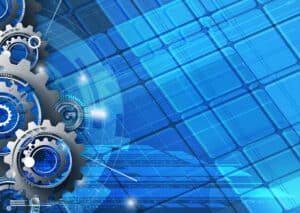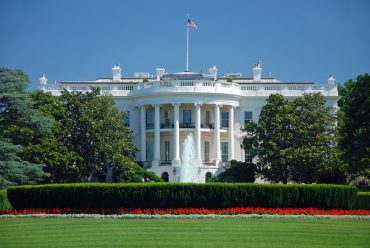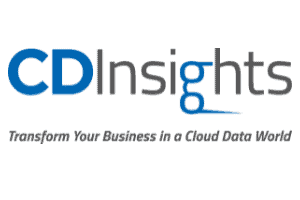
The convergence of AI and data modernization is set to redefine the future of business intelligence.
In today’s tech-driven business environment, Chief Information Officers (CIOs) and Chief Data Officers (CDOs) serve as skilled captains, navigating their organizations through the challenging landscape of business intelligence. The convergence of artificial intelligence (AI) and data modernization is revolutionizing this journey, but only for those organizations able to effectively leverage these new technologies to their advantage.
The convergence of AI and data modernization is not just a trend but a strategic necessity if data-driven insights and informed decision making are to become the new standard. Business leaders need to harness the power of AI, including advancements in generative AI, to drive innovation, fortify cybersecurity, and foster a data-first culture that secures a competitive edge and fuels rapid business growth.
It isn’t enough to simply acquire data. Businesses need to be able to store, process, and use data in more effective ways if they are to stay competitive. According to a recent McKinsey report, 1 in 3 CIOs allocate more than 20% of their IT budget towards managing “technical debt.” Technical debt refers to the challenges businesses face in dealing with legacy data sources – they have access to data but lack the means to properly leverage it to their advantage. Sinking money into technical debt is akin to treading water – businesses will cope and stay afloat but won’t make any headway without the right tools or expertise.
This article explores the transformative potential of data modernization and advancements in AI and reveals how CIOs can harness the power of these innovations to drive innovation, fortify cybersecurity, and foster a data-driven culture that will lead to more sustainable business growth. It will also reflect on the strategic considerations for successful implementation and the potential gains for getting it right.
Why is the convergence of AI and data modernization crucial for CIOs in the era of business intelligence?
The role of a Chief Information Officer (CIO) has evolved significantly in the digital age. CIOs are not just managing IT infrastructure but are driving business innovation through technology. In this context, the convergence of AI and data modernization is becoming a strategic priority for CIOs. By leveraging the sharp edge of AI and adopting a modern approach to data, CIOs can reveal latent patterns, unseen trends, and intricate correlations, generating a remarkable competitive advantage in what has become a fiercely data-driven economy.
AI, with its ability to analyze vast amounts of data and rapidly generate insights, is a powerful tool for businesses. However, its effectiveness is contingent on the integrity and accessibility of data. This is where data modernization comes into play. By migrating to modern data platforms, businesses can ensure that their data is structured, accessible, and ready for AI applications instead of throwing good money after bad on technical debt.
See also: 5 Ways to Lower Technical Debt Through Modernization
How does effective data migration facilitate data-driven decision-making?
Effective data migration plays a fundamental role in enabling data-driven decision-making. Far more than just data relocation, it’s an opportunity to refine data quality and integrity in preparation for more advanced use cases.
Modern cloud-based data platforms offer several advantages over legacy systems. They provide improved data quality, enhanced data security, and greater scalability. Moreover, they support real-time data processing, which is crucial for AI applications. By migrating to these platforms, businesses can ensure that their data is “AI-ready” and primed for analytical processing.
It’s important to remember that data migration isn’t just about moving data. It’s about priming it. According to a recent study, more than 80% of data migration projects fail due to the process being handled as simply moving data from A to B. Instead, businesses should be focusing on making their data fit for purpose, improving the policies and controls around how it is stored and maintained to develop a strong foundation for advanced analytics.
See also: Modernization Plans Dependent on Overcoming Skills Shortages
How does the convergence of AI and data modernization optimize operational costs for organizations?
The convergence of AI and data modernization, when handled correctly, can lead to significant cost savings for organizations. AI can automate routine tasks, reducing labor costs and improving efficiency. It can also analyze operational data to identify inefficiencies and suggest improvements, opening the door to continuous optimization with huge cost-saving potential.
On the data side, data modernization can reduce the overheads associated with data storage and management. Modern data platforms are more efficient and scalable than traditional systems, which can reduce the burden on a company’s IT budget. Moreover, by improving data quality and accessibility, data modernization can reduce the time and resources spent on data cleaning and preparation, further optimizing operational costs as new AI use cases emerge.
What are the strategic considerations for successful AI and data modernization initiatives?
Successful AI and data modernization initiatives require careful planning and strategic consideration. CIOs have a responsibility to develop a comprehensive roadmap that aligns with the organization’s core vision. Identifying key data sources, prioritizing migration efforts, and implementing robust governance frameworks are imperative to ensuring flawless data quality, privacy, and compliance.
First and foremost, businesses need to have a clear understanding of their data needs and objectives. This includes identifying the data sources, defining the data architecture, and determining the data governance policies. For instance, a data classification policy will ensure that data is categorized based on its sensitivity and the level of security it requires. A data retention policy will specify how long different types of data should be kept, balancing business needs with data privacy regulations such as GDPR or CCPA.
What’s more, businesses need to consider the technical and operational aspects of data migration, from choosing the right data platform to planning the migration process and ensuring data is secured during the migration.
Strategic partnerships with technology partners specializing in AI and data migration will prove instrumental in these areas. CIOs will keep the role of “captain,” but instead of building their ship from the ground up, they will be looking to hire the best crew to man it – including tools, platforms, and methodologies to make the migration as seamless as possible.
The Road Ahead
The convergence of AI and data modernization is set to redefine the future of business intelligence. Nine in ten businesses have already invested in AI technology as a means to solve problems and alleviate pain points, but only 14% have deployed AI capabilities as part of their own internal operations. This gap will need to close in the coming years as the value of data-driven business intelligence becomes more apparent. CIOs will stop looking at AI capabilities as “bolted-on” point solutions and start thinking about AI as a foundation on which to build a greater, faster, more resilient business.
The road ahead is ripe with opportunities for those ready to grab AI with both hands, but before they reach out, they must ensure that their data is “AI-ready,” well-structured, and a fit for the volume, velocity, and variety of tomorrow’s use cases.




























